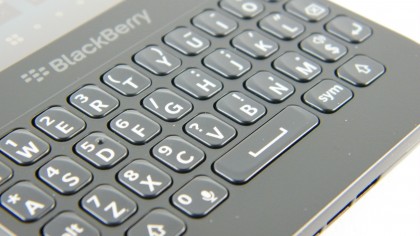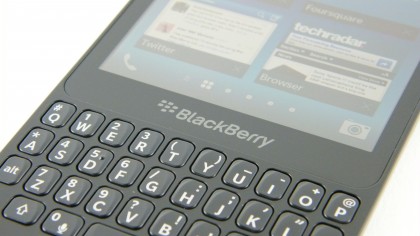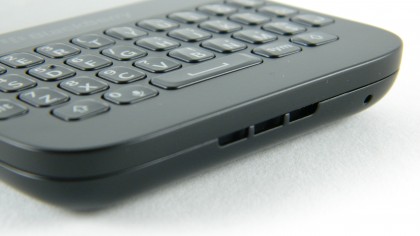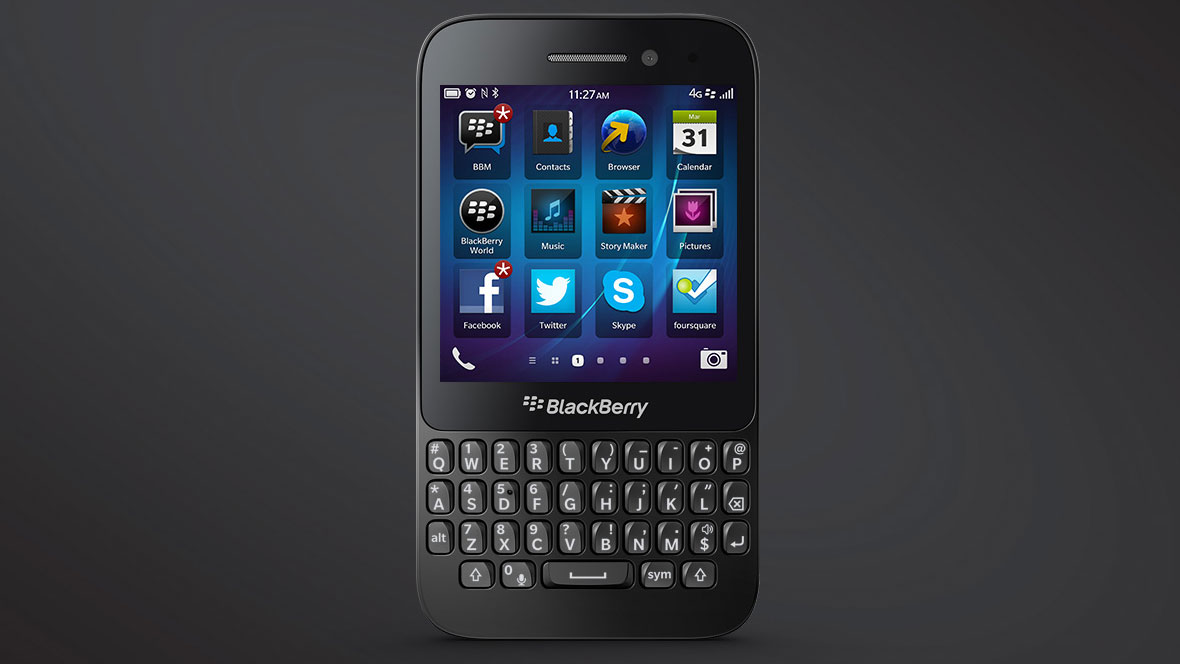Why you can trust TechRadar
The big selling point for the BlackBerry Q5 is its physical keyboard - that and its lower price tag compared to the only other QWERTY keyboard phone on the market worth considering, the BlackBerry Q10.
Those who don't fancy an old-school, button-laden handset will ignore the BlackBerry Q5 from the off, heading instead in the direction of a shiny full touchscreen device, but those still hankering for 35-keys of joy will be sniffing around this smartphone.
What you'll notice immediately is that the keyboard on the Q5 differs greatly to the one found on the more expensive Q10.

Gone are the metallic frets between the keys, and BlackBerry has opted for an isolated, chiclet layout of the buttons on the Q5, which initially gives the impression that you'll get better travel with this handset.
This layout makes the Q5 look a lot cheaper than its premium brother, and it's obvious that this BlackBerry phone is a more budget offering - although its £330 (around US$500 / AU$550) SIM-free price isn't as budget as we'd perhaps have liked.
When we got hands on with the BlackBerry Q5 at the Canadian firm's annual conference in May 2013 we were concerned about the amount of rattle there was when you tried to move the keys with your finger.

Luckily BlackBerry has addressed this issue with the final product, with a much sturdier set of keys adorning our Q5 full review unit - although some rattle was still present, which slightly detracts from the usability experience.
While we dubbed the BlackBerry Q10 the best QWERTY keyboard on the smartphone market we unfortunately can't say the BlackBerry Q5 lives up to the same billing.
Even though the gaps between the keys make it look like a well spaced offering, the fact of the matter is that the buttons are actually smaller than on the BlackBerry Q10, making them trickier to hit and increasing the number of typing errors we experienced.

We admit that we're not fans of the QWERTY keyboard and much prefer touchscreen typing these days, but general consensus from our BlackBerry-using friends is that the BlackBerry Q5's board is nowhere near the same quality as the BlackBerry Q10's.
The small, pokey keys may have been engineered with their own unique angles to speed up typing, but at the end of the day the BlackBerry Q5 is a sub-par QWERTY offering.
One-handed typing is also difficult, as we really had to stretch our thumb to reach the far side of the phone, which often led to the wrong key being hit.
This isn't so much to do with the width of the BlackBerry Q5 - it's around the same as the Galaxy S3 in that respect - but the girth of the handset that made it a little unruly in the palm when attempting to type with one hand.

The BlackBerry Q5 does offer next word prediction, auto-complete and spell check to speed up typing, but the first two were not turned on by default.
It only took a few seconds to dive into the settings menu and turn these features on, but we knew what we were looking for, while the average user may go the whole time without ever knowing that these options exist.
The BlackBerry Q5 learns your writing style and adapts its predictions based on what you've previously written, so the more you use it the more you'll find it offers up the words you want, reducing your time spent on the keyboard - and thus reducing the number of mistakes.
It's a system we've become accustomed to on the likes of SwiftKey on Android, and it's a handy feature that will no doubt be a boon to the email generation.

TechRadar's former Global Managing Editor, John has been a technology journalist for more than a decade, and over the years has built up a vast knowledge of the tech industry. He’s interviewed CEOs from some of the world’s biggest tech firms, visited their HQs, and appeared on live TV and radio, including Sky News, BBC News, BBC World News, Al Jazeera, LBC, and BBC Radio 4.
